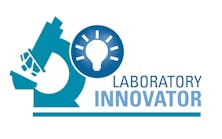A genome-wide association study (GWAS) led by Peter Nelson, MD, PhD, and David Fardo, PhD, has provided new insight into Hippocampal Sclerosis of Aging (HS-A), a common disease affecting the elderly. The study, funded in large part by the National Institute of Aging/National Institutes of Health, was published in Acta Neuropathologica. Researchers from 16 institutions compared 363 persons with autopsy-proven HS-A to a control group of 2,303 other individuals in an effort to identify genetic predisposition to HS-Aging.
The researchers found that small changes in the ABCC9 gene, also known as Sulfonylurea Receptor 2, strongly paralleled the incidence of HS-Aging. Further statistical analysis demonstrated a link between the use of sulfonylurea, a medication commonly used to treat diabetes, and an increased risk for HS-A.
GWAS studies are a relatively new way to explore the linkage between any disease and genetic factors that may contribute to it. Using the DNA of people with the target disease and without, millions of genetic variants are read and analyzed in an attempt to mark a region of the human genome that influences the risk of the target disease. In contrast to methods which specifically test one or a few genetic regions, the GWA studies investigate the entire genome.
“This work confirms that problems that occur in the brains of the elderly are complicated—but until we delve deeper into that complexity, we will be frustrated in our goal of finding new cures,” Nelson says. “If further research confirms the genetic link we have identified in this study, it might inform new strategies to search for cures.” Read the study abstract.
Read more




